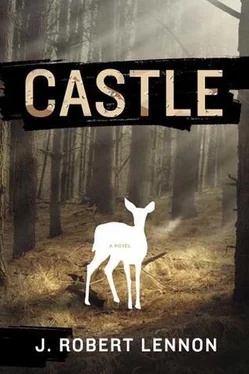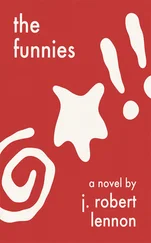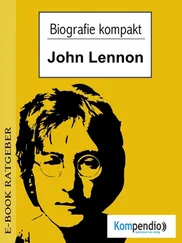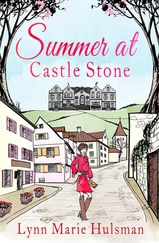I had to catch myself from falling into reverie — it was easy to lose focus, doing such dull work. In the end, though, it was during such a reverie, when I was gazing blankly into my past, or lack of it, through the still image of a random newspaper page, that I realized I had happened upon the information I’d been looking for.
It was an obituary, its headline no more than a single name: Mary Killian Stiles. Mary Killian Stiles, 37, passed away Monday, at her home in Town of Henford. Mrs. Stiles was born in East Rutherford, New Jersey, and has lived in the Milan-Gerrysburg area since 1958. She is survived by her husband, Dr. Avery Stiles, a clinical psychologist and professor of psychology at SUNY Milan. She is predeceased by a daughter, Rachel.
There was no mention in the obituary of how Rachel Stiles had died. But it seemed to me that Doctor Avery Stiles’s story was very sad indeed. I rewound the microfilm and turned off the reader, then went to the circulation desk to return the box to the librarian.
She accepted it and set it aside, then gazed at me with great seriousness over the top of her eyeglasses. “Don’t you remember me?” was her question.
“It was you who gave me the microfilm an hour ago,” I replied.
My answer seemed to take her by surprise. She smiled, and raised a single eyebrow.
“You’re Eric Loesch, aren’t you,” she said.
“Yes, I am.”
“I’ve been working here since you were a small boy,” the librarian went on. “Your mother used to bring you here. I’m Mrs. Hill.”
It was clear from her tone that she hoped this name would ring a bell. But it did not. I have never been comfortable with white lies, but the librarian had been helpful to me, and deserved my good will, so I smiled and took her hand. “Mrs. Hill!” I said. “I’m sorry I didn’t recognize you. It’s been a very long time.”
“You wanted to build a moon base,” she said. “I remember, all one summer, you couldn’t have been more than seven or eight years old, all you wanted were books on engineering and space travel. I quickly ran out of books for you — I actually ordered more. Some of them are still here.”
“I never knew,” I said truthfully, “that you had gone to such lengths for me.”
“I would talk with your mother sometimes, as you worked. I recall she said she had no idea where your brains came from. She said you were the smartest person she had ever known.”
This came as a great surprise to me — my mother had never told me anything of the sort. I wondered, briefly, if this Mrs. Hill might actually be suffering from some kind of senile dementia, if perhaps she was confusing me with another patron. She asked me if I had been able to put my smarts to good use.
“Yes, of course,” I said.
Now the old librarian averted her eyes. Her fingers found the countertop and drummed idly there. “Eric,” she said. “I want to tell you how sorry I am for what happened to your poor parents.”
Quite suddenly I wished to leave. “That’s kind of you to say.”
“I… I wish there was something I might have done. I considered your mother a friend.”
“I’m sure she felt the same way about you, Mrs. Hill. But I really—”
“I knew that all was not right. But I didn’t realize how terribly, terribly desperate—”
I brought my hand down on the counter with what I’m afraid was excessive force. The sound made the librarian jump, and I spoke perhaps more loudly than I had intended. “That’s quite enough, Mrs. Hill!”
“I beg your pardon…”
“Thank you for your assistance with the microfilm,” I said, and turned toward the door.
It was, then, the sight of the door itself — large, oaken, and divided into fifteen glass panes — that brought back to me the memory of coming to the library with my mother that summer, the moon landing summer. We would come here, and Mrs. Hill would bring my books to me, and I would make my plans in a marbled notebook, my plans for the moon base which I intended to send to President Johnson. And my mother would talk to Mrs. Hill, or read magazines, or go outside and smoke, and when it was time to leave we would walk through that heavy door, summer sunlight blasting through the panes, and walk to Pernice’s and eat our ice cream cones in the park. We would sit side by side on a bench, and I would tell her about the work I was doing, about the science that I was trying to understand, and the wind would pick up her hair and blow it into my face, and she would laugh and tie it back behind her head. Or it was raining, and we would run from the library to Pernice’s, and my mother would drink coffee and the rain would stream down the window beside her. My sister was off somewhere with her friends, my father was at work, but neither of them ever came up in our conversations; they weren’t on our minds at all.
All of this I remembered as I strode toward that door, as I pushed it open and emerged into the cold wet April air. I crossed the parking lot in the rain, much as I had in memory, got into my car and started the engine and sat there, waiting for the heat to come on, to take the fog off the windows. It took a long time, and when I finally pulled out of the library parking lot, my face was still wet.
It was difficult to find anywhere to park at SUNY Milan. The buildings were low, and cracked cement was everywhere, and I struggled to find the visitor lot on the water-damaged campus map. Eventually I flagged down a passing university policeman and he told me where to go.
The department of sociology was housed in a long brick structure that resembled a passenger train, its wide windows tinted against the sun and sealed shut. The building directory hung just inside the double doors, and it led me to the far end, where the office I sought was located. PROFESSOR LYDIA BULGAKOV, a sign read, followed by a schedule. I read the schedule, glanced at my watch, and sat down in a nearby chair to wait.
An hour later, a figure appeared far down at the end of the hall and strode toward me on strong, compact legs. She was rather short, in her late forties, with broad hips, narrow shoulders, and a wide, round face surrounded by wild gray-black curls. A pile of books and papers was balanced in her arms. She appeared puzzled by my presence, and offered me an appraising glance as she drew a set of keys from a skirt pocket and unlocked the office door. I heard the thump of her schoolwork hitting a desk, and then her head appeared around the jamb. “You’re here to see me?” she asked.
“Yes.”
“Then come in.”
The office was small but comfortable, with bookshelves concealing the cinderblock walls, and several table lamps filling the room with warm yellow light. Lydia Bulgakov sat down behind a large metal desk and gestured to a chair beside it.
“I thought you would be Russian,” I said, taking a seat.
“I am Russian.”
“Your English is unaccented.”
She nodded. “My family immigrated here when I was ten. I have been told that my accent returns when I have had a glass or two of wine, but I suspect this is wishful thinking on the part of my acquaintances. And you are?”
I told her my name. “I have come to ask you about a former colleague of yours, a man named Avery Stiles.”
She shook her head. “Not a former colleague. He was gone years before I came here. I was still a child, in fact.”
I told her about the article I had found, and the allusion to his “sad story.” I said that I had found his wife’s obituary and wanted to know what other information she had about him. I asked her these questions respectfully, deferentially, as I sensed a certain self-confidence in Professor Bulgakov, a haughtiness even, which my usual methods of questioning, it was clear, would do little to penetrate.
Читать дальше











